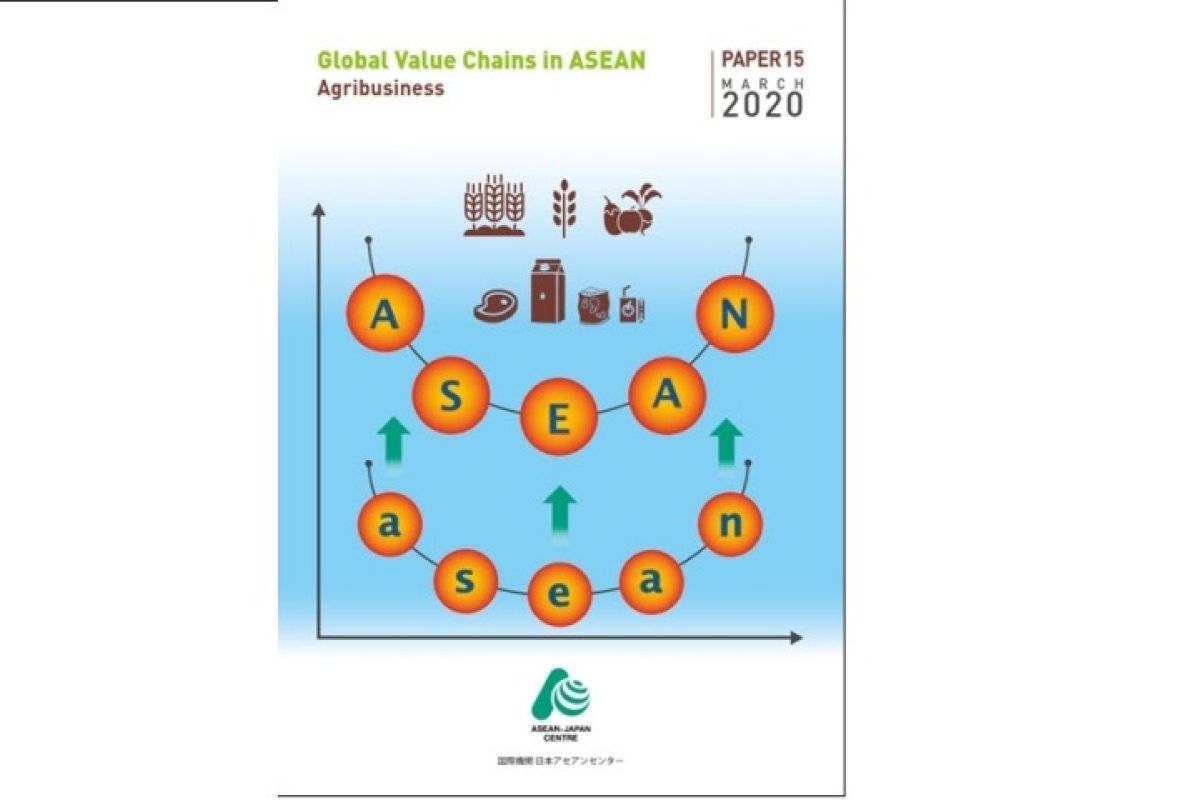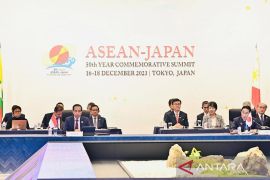TOKYO--(Antara/BUSINESS WIRE)-- Does competitiveness of agribusiness really increase in ASEAN? The answer is yes according to the ASEAN-Japan Centre. The Centre provides a solution to this question by participating more in global value chains (GVCs) of agribusiness in its report, “Global Value Chains in ASEAN: Agribusiness,” issued today (https://www.asean.or.jp/en/centre-wide-info/gvc_database_paper15/).
Agribusiness1 plays an important role in the socio-economic development of the Association of Southeast Asian Nations (ASEAN), accounting for 12% of GDP in ASEAN on average in 2018. Agribusiness also provides jobs and livelihood to 100 million people, or one-sixth of the total population, and their families in ASEAN.
It is also a major source of trade revenue in many ASEAN countries. ASEAN’s value-added exports in agribusiness amounted to $102 billion in 2015. The share of foreign inputs used in ASEAN’s agribusiness exports, or the backward linkage to GVCs, was 20% of the total gross exports of ASEAN in 2015. The share of foreign value added is higher for food products than agricultural products. China, the United States, and Japan are the three largest foreign contributors to ASEAN’s agribusiness exports. The amount of ASEAN’s value added incorporated in other countries’ exports, also referred as forward participation in GVCs has been increasing since 1990.
Improving productivity in agricultural output is an important policy priority for addressing food security. At the same time, some countries, especially Cambodia, Lao PDR, and Myanmar (the CLM countries), lack food processing capacities and import large volumes of processed food for their domestic markets. Shifting from simple agriculture to the higher value-added food processing industry is a common priority in ASEAN.
Participating in and moving up the agribusiness GVCs may provide ASEAN with opportunities to increase its productive capacities by using efficient foreign inputs and technologies obtained through foreign direct investment (FDI) and non-equity modes (NEM) of operation.
Japan has been a strong supporter of agribusiness in ASEAN. There is a joint effort by the Government of Japan and the private sector to develop agribusiness in ASEAN and integrate it into GVCs.
In order to effectively participate in agribusiness GVCs, the Centre proposes a set of three groups of policy recommendations to increase productivity.
• ASEAN should aim to improve the enabling environment to promote trade and attract FDI in agribusiness, which links local producers to global supply chains and triggers technology transfer and improved productivity.
• ASEAN should enhance the absorption capacities of local food producers, including smallholder farmers and SMEs, in order to realize the technology spillovers.
• Furthermore, to ensure the quality of FDI and NEM for sustainable development, ASEAN should promote responsible investment in agriculture by supporting international practices, such as the Principles of Responsible Agricultural Investment.
1 Agribusiness in this paper is defined to cover only agriculture and food processing industries because of data limitations. Other industries of the value chain, such as distribution, retailing, and other businesses (e.g. restaurants) are therefore not included.
Contacts
ASEAN-Japan Centre
Tomoko Miyauchi
toiawase_ga@asean.or.jphttps://www.asean.or.jp/en/
Source: ASEAN-Japan Centre
Reporter: PR Wire
Editor: PR Wire
Copyright © ANTARA 2020












